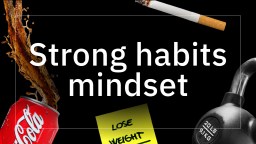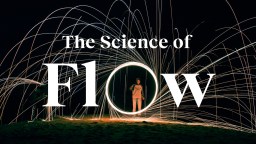We all can reach a “flow state.” Here’s how.

- Someone who’s experiencing flow is essentially performing at or near their mental peak. The world melts away and all that’s left is the task at hand — and excelling at it.
- You can enter flow more often my liberating yourself from distractions, performing activities when you’re most alert, and taking on tasks that truly motivate you.
- So delve into activities – be they work, hobbies, sports, parenting, etc. – that truly drive you, and focus on them entirely when you do. You might find yourself entering into flow more often.
We’ve all witnessed someone performing at the peak of what is possible, and it’s an awe-inspiring sight. Maybe it’s a politician delivering a transcendent speech, a singer belting out a performance that will echo through the ages, or an athlete playing so well they’re basically infallible. In these situations, chances are you’re witnessing a human who’s entered a “flow state”.
Hungarian-American psychologist Mihaly Csikszentmihalyi, who for years headed the department of psychology at the University of Chicago, originally recognized and named the concept of flow decades ago. He outlined six key factors that define it:
- Sharply focused concentration on the present, and only the present
- “Merging of action and awareness”
- An absence of second-guessing yourself
- A complete sense of control over the situation
- An altered perception of time
- Experiencing the activity as intrinsically rewarding
To summarize, someone who’s experiencing flow is essentially performing at or near their mental peak. The world melts away and all there is is the task at hand, and excelling at it.
The benefits of flow
Flow feels great. When in flow, dopamine, the “reward” hormone, courses through the brain, and areas that respond to it are more active.
Csikszentmihalyi passed away last year after dedicating much of his career to researching flow. Others have taken up the mantle. One of these thinkers, author, journalist, and entrepreneur Steven Kotler, recently sat down with Big Think, offering tips that anyone can use to experience more flow in their lives. Kotler has been studying and writing about the concept for three decades. He’s the Executive Director of the Flow Research Collective.
For starters, Kotler recommends taking on challenges that ever-so-slightly exceed your skill-set, as these require extra attention. Moreover, this forces you to learn to be comfortable with being outmatched and a little uncomfortable.
Kotler also urges setting a proper scene. If you know you’re a morning person, take on complicated tasks in the morning. If you thrive at night, do them at night.
And when you do take up challenges, concentrate on them completely, removing as many distractions as possible. No smartphone, no television, no multi-tasking.
“Flow only shows up when all of our attention is in the right here, right now,” Kotler said.
It also tends to show up only if we are sufficiently motivated by the task at hand. Driving this motivation is curiosity, passion, purpose, autonomy, and mastery, Kotler said.
“When we’re curious about something, we don’t have to struggle. We don’t have to burn a lot of calories trying to pay attention to it.”
Curiosity can lead you to become passionate about something, which can in turn drive that thing to give you purpose. The activity itself becomes fulfilling. It is the means and the end.
“Once you have purpose, the system demands autonomy,” Kotler further explained. “I want the freedom to pursue my purpose. And once you have that freedom, the system wants the last of the big motivators, mastery. Mastery is the skills to pursue that purpose well.”
So delve into activities – be they work, hobbies, sports, parenting, etc. – that truly drive you, and focus on them entirely when you do. You might find yourself entering into flow more often, which will in turn make you more productive and successful.
“We’re all capable of so much more than we know. It’s the largest lesson in 30 years of studying peak performance has taught me,” Kotler said.





